
A significant number of artists from Madras/Chennai incorporate words and scripts in their art1. One reason for this is the dominance of the line, an element that forms the basis of writing and art, in the Madras Art Movement. With artists wanting to ‘write their paintings’ in the Madras Art Movement, scripts manifested both directly and indirectly in artworks. Moreover, the script is an expression of language which has played a key role in shaping Chennai’s profile; in the 1950s, both Telugu and Tamil speakers claimed the city belonged to their respective states. The city is also associated with Dravidian ideology, which among other things, argues for the cause of Tamil. In its name too, Chennai bears the mark of linguistic and cultural politics. Given these factors, it would be relevant to examine the use of scripts and words by artists from Chennai against the broader context of language.
K. C. S. Paniker’s Words and Symbols series from 1963 is considered a point of reference amongst artists using script in the city. Consisting of script, mathematical symbols and diagrams, “Paniker vehemently reiterated (the words) were not meant to be read but conceptually to meld with the aesthetic.”2 One can read the decision to use an illegible script from a modernist perspective and the desire to forge a vocabulary that would at once be rooted in local and international contexts. One can also read between the lines of Paniker’s choice to abstract script against a linguistic backdrop.
Denne historien er fra January 2020-utgaven av Art India.
Start din 7-dagers gratis prøveperiode på Magzter GOLD for å få tilgang til tusenvis av utvalgte premiumhistorier og 9000+ magasiner og aviser.
Allerede abonnent ? Logg på
Denne historien er fra January 2020-utgaven av Art India.
Start din 7-dagers gratis prøveperiode på Magzter GOLD for å få tilgang til tusenvis av utvalgte premiumhistorier og 9000+ magasiner og aviser.
Allerede abonnent? Logg på

Parts, Wholes And The Spaces In Between
Sonal Sundararajan introduces Samira Rathod's free-spirited and rebellious explorations in the world of architecture, furniture and design.
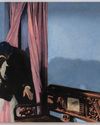
"The Fine Art of Going to the Pictures."
Dr. Banerjee in Dr. Kulkarni's Nursing Home at Chemould Prescott Road brings together 26 paintings featuring a series of dramatic scenes from Hindi and Bengali films. In conversation with Abhay Sardesai, artist Atul Dodiya talks about childhood trips to movie halls, painted figures gripped by tension, and the closeness and remoteness of cinematic images.
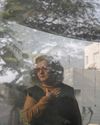
"To Finally Have Something of Your Own to Mine."
Dayanita Singh is the recipient of the coveted 2022 Hasselblad Award. Keeping the photograph at the centre, she speaks to Shreevatsa Nevatia about books, book objects, photo novels, exhibitions and museums.
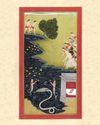
OF DIVINE LOSS
Shaurya Kumar explores the relationship between the subject and object of devotion, finds Aranya.

THE PAST AND ITS SHADOWS
Neha Mitra visits two shows and three artists in Mumbai.
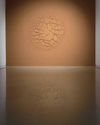
FORCE OF NATURE
Alwar Balasubramaniam dwells on absences and ephemeralities in his new work, states Meera Menezes.
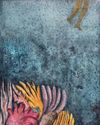
SHAPES OF WATER
Devika Sundar's works delineate the murky, malleable boundaries between the human body and the organic world, says Joshua Muyiwa.
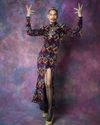
INTIMATIONS OF INTIMACY
Sunil Gupta shares his journey with Gautami Reddy.
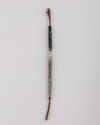
THE FRACTURED PROSPECT
Nocturnal landscapes as ruins in the making? Adwait Singh looks at Biraaj Dodiya's scenes of loss.
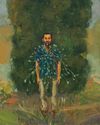
TEETERING BEYOND OUR GRASP
Meera Menezes traces Mahesh Baliga's journey from Moodabidri to London.